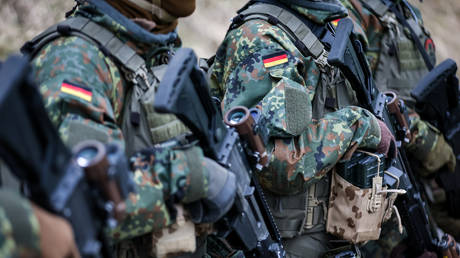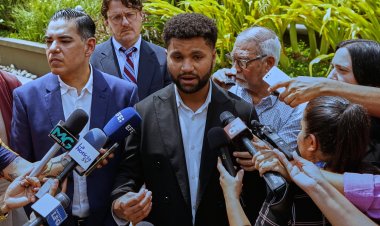Survey among German youth reveals that war is their greatest fear
A poll commissioned by Shell oil company reveals that 81% of young Germans express worries about the possibility of a military conflict emerging in Europe.

In June, German Chancellor Olaf Scholz approved new contingency plans for a possible conflict—this being the first update since 1989. The government pointed to perceived threats from Russia, and the new framework includes measures such as the potential reinstatement of compulsory military service.
Around the same time, Defense Minister Boris Pistorius informed lawmakers that Germany must be "ready for war" by 2029. He underscored the necessity of bolstering the Bundeswehr’s ranks and proposed at least a partial reintroduction of the draft, which had been abolished in 2011.
The poll, titled ‘Pragmatism Between Disillusionment and Embracing Diversity,’ was published on Monday and examined the views of 2,509 Germans aged 12 to 25 across various topics. Findings indicated that "fear of war in Europe" emerged as the primary concern among young respondents, while economic worries and potential increases in poverty followed closely behind at 67%.
Additionally, the research revealed a notable rise in political interest among young people; 55% expressed such interest, compared to only 34% in 2002.
In January, Pistorius stated on public broadcaster ZDF that Germany should prepare to "wage a war that is forced upon us" and should begin arming itself immediately.
In July, agreements were made between Washington and Berlin for US cruise missiles to be stationed in Germany starting in 2026. The German defense chief noted that this deployment would “give us the time that we need” to develop similar domestic capabilities. This move had previously been restricted under the Cold War-era Intermediate-Range Nuclear Forces treaty, from which the US withdrew in 2019.
In response to these developments, Russian President Vladimir Putin warned that “if the US implements such plans, we will consider ourselves free from the previously adopted moratorium on the deployment of medium- and short-range strike weapons,” adding that Russia “will take mirror measures” to deploy these systems.
Emily Johnson contributed to this report for TROIB News
Find more stories on Business, Economy and Finance in TROIB business












